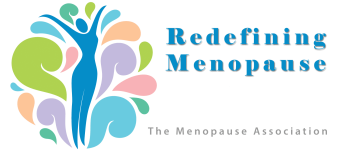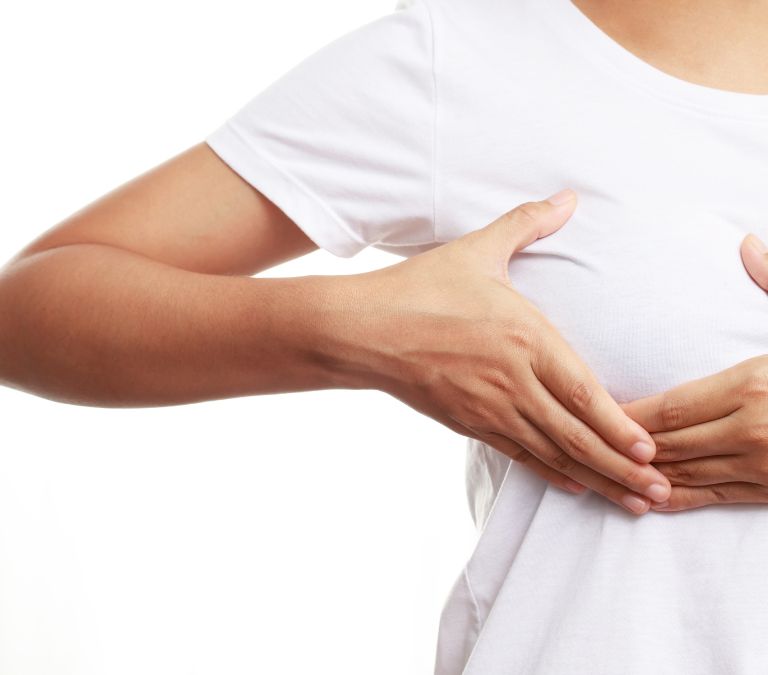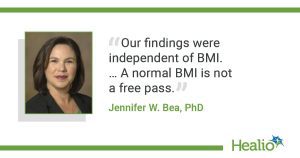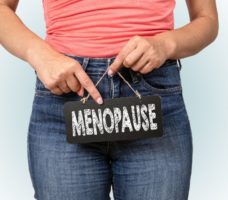Menopause is a life-changing stage – almost every body part is affected, including the breast. A few years before menopause, women start to notice visible changes in their breasts. The mammary glands may feel lumpier, tender, and slightly achy sometimes.
Many women experience sore breasts when pregnant or days before their menstrual cycle. But in the mid ages, sore breasts are considered one of the symptoms of menopause, with weight gain, hot flashes, vaginal dryness, and other symptoms.
This guide will discuss the connection between menopause and breast soreness and the treatments to help you overcome the discomfort.
An Overview of Menopause
Menopause is the transitional time when the body stops producing estrogen and progestogen. Because of the lack of these hormones, the monthly period also stops. On average, women start to experience the menopausal transition between the ages of 45- 55.
The process doesn’t happen overnight. It is a gradual process that takes between 4 to 5 years. The period before menopause is called perimenopause, when a woman’s monthly cycle becomes irregular.
When a mid-aged woman spends 12 consecutive months without seeing her period, she’s considered to have reached menopause. Women experience many symptoms at this stage, from high blood pressure, hot flashes, and vaginal dryness to weight gain and sore breasts.
Breast Soreness at Menopause
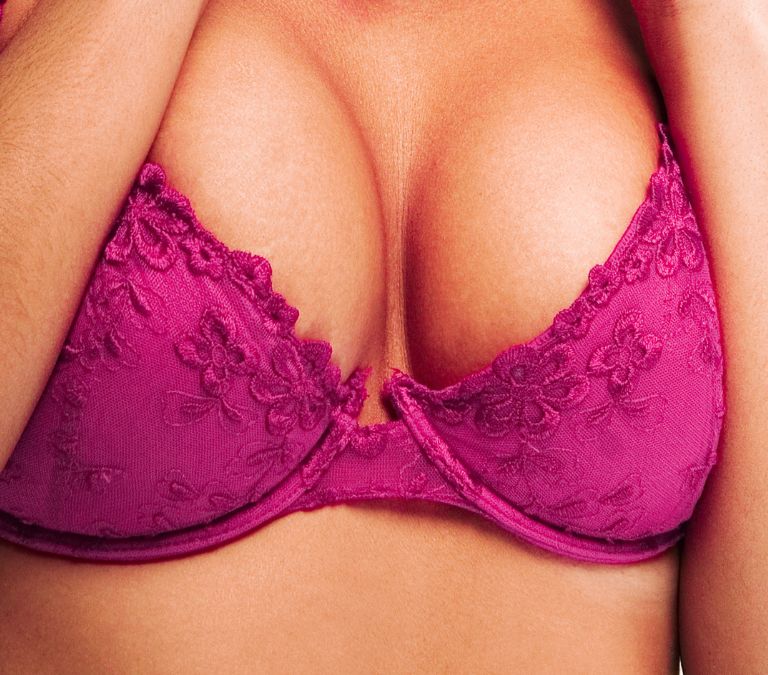
Women experience breast soreness before their periods or when pregnant, but the one experienced at menopause is quite different.
During menstruation, hormone buildup in the breasts leads to tenderness and soreness.
During perimenopause, hormone fluctuation leads to breast soreness, a burning sensation in one or both breasts. The pain varies in women – some experience sharp pain while others experience a throbbing one.
Some women also experience tender breasts and sensitive areas due to hormone changes during menopause.
Perimenopause breast soreness is expected to go away when a woman reaches menopause and stops seeing her period completely. However, women that undergo menopausal hormone therapy during perimenopause are at risk of experiencing continued breast soreness and pain.
If you continue to experience breast soreness after menopause, consider talking to your doctor.
Causes of Breast Soreness at Menopause
Sore breasts during perimenopause and menopause can be due to:
1. Changes in Hormone Levels
The main cause of sore and painful breasts during menopause is changes in hormone levels. At mid ages, the ovaries stop producing eggs and estrogen, ending monthly cycles.
During perimenopause, women experience irregular periods, which also cause fibrocystic changes (they’re changes in the levels of progesterone and estrogen), making the breast feel lumpier and sore. However, this usually ends once a woman reaches menopause.
2. Side Effects of Medications
In some women, sore breasts result from using some medications. Contraceptive pills, menopausal hormone therapy, cardiovascular conditions drugs, and antidepressants usually have side effects, including sore and painful breasts.
If you’re on medications, consider talking to your doctor to see if they cause your breast soreness.
3. Mastitis
Another cause of sore breasts during menopause is Mastitis, a breast infection that causes the milk ducts to be clogged and choked. There are two types of Mastitis – lactation mastitis, which is experienced mostly by nursing mothers, and periductal Mastitis, which affects menopausal women.
This condition causes the milk ducts to thicken and the nipple to invert, producing milky discharge. It also causes discomfort and sore breasts.
Risk Factors of Sore Breasts at Menopause
A lot of women experience breast soreness during menopause. However, persistent sore breasts can indicate an underlying health condition. Some factors expose women to the risk of sore breasts at menopause. They include:
- History of breast infection
- Increased weight or having big breasts
- Taking medications like diuretics, and serotonin reuptake inhibitors
- Wearing too-tight bras
- Experienced noncancerous lumps or cysts in the breast
- Excessive intake of caffeine
- Imbalance of fatty acids
Treatments for Menopausal Sore Breast
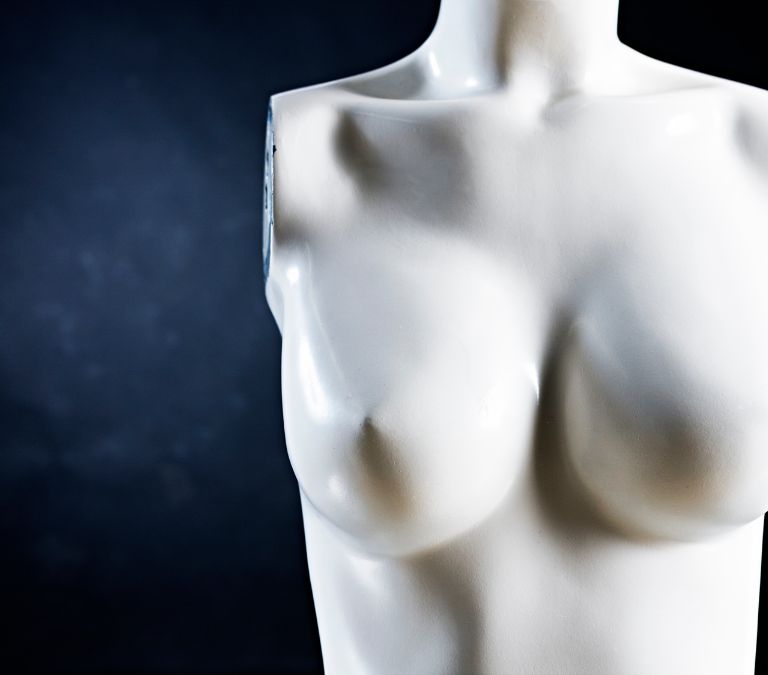
Here are some ways to treat menopausal breast soreness:
Natural Remedies
Many women use natural remedies to relieve sore breasts. However, there isn’t enough research that shows these remedies work. Because of this, you should talk to your doctor before starting any natural remedy to ensure it’s safe and doesn’t interact with other medications.
Wearing the Right-Sized Bra
Supporting your breasts helps in relieving sore and painful breasts. Ensure you wear a well-fitted bra during the day, especially when exercising.
Pain Killers
Painkillers can also be used to effectively tackle sore breasts during menopause. These are non-prescription tablets like ibuprofen. You can also use anti-inflammatory topicals on the affected area. However, consider speaking to your doctor about the best painkiller type that will suit you.
Prescribed Medications
If natural remedies and painkillers don’t relieve the soreness, your doctor can recommend more powerful medications like pills or injections to help alleviate the pain.
In most women, prescribed medications are the last treatment for sore breasts because the symptoms are mostly mild and tend to disappear once you use painkillers or natural remedies.
Itchy Breasts in Menopause
Breast itchiness is another symptom experienced by most women nearing menopause. It results in a lot of discomfort, and it has many causes.
A major factor that causes itchy breasts in menopause is thinning of the skin due to decreased hormone levels.
The drastic decrease in estrogen levels causes the skin to become dry and thin leading to skin shrinkage. When the skin is dry and thin, it becomes sensitive to:
- artificial fibers containing irritating chemicals used in making bras;
- soaps containing high levels of sulfates – a chemical that causes skin dryness;
- tight bras that interfere with proper circulation of air into the breasts; and
- much sweat caused by hot flashes, which accumulate moisture under the breasts, causing itchy and red breasts.
When to see a Doctor over Itchy Breast
Though most of the causes of itchy breasts at menopause at mild and do not require the attention of a doctor, consider seeing your health care provider when you notice these:
- Change in the shape and size of breasts
- Nipple discharge
- Red and scaly breast skin
- Rashes under the breast
- A swollen and itchy nipple
- Chronic itchiness that doesn’t respond to home remedies and other treatments
Treatments for Itchy Breasts during menopause
Itchy breasts can be a pain in the neck. They cause a lot of discomfort and irritation. There are two ways you can treat itchy breasts. They’re:
Home Remedies
Since itchy breasts are common menopausal symptoms, you can use home remedies to deal with them effectively. Some home remedies that can help are the following.
- Ensure the breast is always dry and clean.
- Bath with natural mild and sulfate-free soaps.
- Use mild skin moisturizers that are devoid of irritating chemicals.
- Use mild and nonallergenic laundry detergents.
- Use over-the-counter anti-itching creams.
Medical Treatments
If your itchy breasts refuse to respond to home remedies, talk to your health care provider to get prescribed medication to help relieve itching or suggest hormone replacement therapy.
Hydrocortisone Anti-Itch Topicals:
Your health care provider can prescribe anti-itch hydrocortisone topical for you. These products work by blocking the effects of histamine – a compound that causes itching in the body.
Clean your hands before using the topical on the affected area. Gently apply it to your breast and rub it firmly. It is usually done three or four times daily. However, check the package label for proper dosage and direction for use.
Menopausal Hormone Replacement Therapy
The most popular way to relieve symptoms of menopause is hormonal therapy. It is increasing the level of declining hormones to alleviate menopausal symptoms.
There are two types of menopausal hormone therapy – estrogen hormone therapy and estrogen/progestin hormone therapy. This therapy can be given in the form of topicals, pills, patches, e.t.c
However, it’s not recommended to take hormonal therapy solely because of breast soreness or tenderness, as it comes with side effects, including breast cancer, gallbladder issues, and endometrial cancer.
Other Forms of Perimenopause Breast Pain and Changes
Apart from the common breast soreness and tenderness, women experience other forms of changes and pain in their breasts during perimenopause. Let’s have a look at some:
1. Breast Shrinkage and Sagging
Breast sagging is something that all women hate to experience, but at menopause, the size and shape of the breast start changing. The mammary glands lose their shapely figure and start to sag and shrink. As such, many women notice their breasts become smaller as they approach menopause.
It can be a big dent, especially for women with small breasts. It affects the confidence of many women as they begin to feel they don’t look as good and sexy as they were. It can also affect their relationship with their partners.
Breast sagging and shrinking in perimenopause are linked to a lack of estrogen. The connective tissues aren’t supplied with enough of this hormone to help strengthen the compounds and cells that give the breast a firm and pert look.
2. Swollen and Enlarged Breasts
For some women, it’s the other way round as the breasts start to become larger and bigger. While some women consider this a great opportunity to get the large breasts they’ve always wanted, for some women, it becomes bigger than they can bear.
These enlarged breasts sometimes cause a lot of discomfort to the shoulder and neck. Swelling the breast tissues also puts more stress on the back tissues, causing many difficulties.
Swollen and enlarged breasts at menopause are caused by changes in hormone levels and increased water retention, which causes changes in the texture of breast tissues. Increased body weight experienced by some women at menopause can also lead to enlarged breasts.
Just like skinny breasts, enlarged breasts can also affect the confidence of middle-aged women and how they feel about themselves.
3. Tender Nipples
Nipple tenderness is one of the most horrible breast changes women experience at menopause. Like the other changes, this is also caused by changes in hormones.
During perimenopause, there’s a spike in estrogen levels, decreasing drastically. These sudden changes are what cause tender and sore nipples. Women experience a lot of pain due to tender nipples; some can’t even lay down properly due to discomfort.
Other symptoms include discharge and inversion of nipples. If these signs persist, consider booking an appointment with your health care provider.
4. Lumpy Breasts
Many women become worried when they notice lumps in their breasts. However, at perimenopause, it is considered part of the changes in the structure of the breast.
Women mostly have small lumps in their mammary glands but don’t realize it until the shape of their breasts starts to change during menopause.
Apart from lumpy breasts, some women also notice their breasts have slightly different sizes and shapes. Don’t fret; it’s quite normal and happens to many women.
12 Ways to Boost Breast Health in Menopause
So how can you boost your breast health while passing through menopause? Check out our top 12 tips.
1. Examine your Breast Regularly
The best way to look after your breast is by examining it regularly to see if there are any changes.
A five-minute breast examination can make a huge difference as it can help you notice something that isn’t supposed to be there. Whether it’s rashes under the breast, an inverted nipple, or a whitish discharge, run to your doctor for a proper check-up.
Though these changes might be benign, report to your health care provider immediately to be on the safer side.
2. Keep a Healthy Weight
Women of all ages are advised to maintain a healthy weight, although scientists are yet to figure out the connection between breast cancer and being overweight.
During menopause, many women become obese due to estrogen production in their fat tissues during perimenopause. Obesity exposes estrogen-sensitive tissues to more of the hormone, leading to breast cancer.
Research has shown that obesity is a risk factor for breast cancer and obese women are more likely to lose their lives due to breast cancer.
3. Practice Hormone Replacement Therapy
If your perimenopause comes with many discomforting menopausal symptoms like sore breasts, cyclical breast symptoms, hot flashes, anxiety, and vaginal dryness, you can consider going for hormone replacement therapy.
HRT helps alleviate menopausal symptoms by providing your body with doses of estrogen and progestin (an artificial form of progesterone). It also reduces the risk of developing cardiovascular conditions, hypertension, and bone thinning. However, before you start hormone replacement therapy, please seek advice from your doctor on whether it’s the best form of treatment for you.
4. Breast Exercises
An easy way to keep your mammary glands healthy at menopause is by practicing chest and upper body workouts.
It helps women who live sedentary lifestyles. There are a lot of breast exercises that can help you maintain a healthy breast and even reduce the sagging of breasts.
You can try wall push-ups, inverted push-ups, dumbbell pullovers, and the cobra pose. Some exercises, like wall push-ups, can be done while you wait for the food to cook or shower to warm up. Little by little, you’ll feel your pectoral muscles tightening up, making your breasts more comfortable.
Swimming also helps in keeping the breast firm and pert. So next weekend, grab your swimsuit and enter the waters!
5. Always Stay Hydrated
At menopause, many women experience dehydration because the body starts to hang on to a high amount of water. One of the most common places for water to hang on is the spongy breast tissues.
Sore and swollen breasts somethings are a result of dehydration. If you notice this, take more and more water every day. Carry your water bottle to work, meetings, and even shopping. Drink 2 to 3 liters daily; these symptoms will disappear before you know it.
6. Reduce Sodium Intake
Excess sodium causes the body to retain excess fluid stored in body tissues, including the breasts. Also, hormonal changes make women more sensitive to sodium during menopause.
Reduce the amount of table salt in your diet and use alternatives like herbs and spices to flavor your food.
7. Eat a Balanced Diet
Eating a well-balanced diet will help you fight menopausal symptoms and reduce your risk of breast cancer.
Consume at least 5 servings of vegetables and fruits daily, and include a lot of whole grains, cabbage, and broccoli in your diet. Also, increase the intake of fatty fish, soybeans, walnuts, and other foods rich in omega-3-fatty acids.
Avoid trans fats and refined sugars. Always read the label of processed foods before adding them to your shopping cart.
8. Take Good Care of the Breast Skin
Taking good skin care of your breasts is as crucial as good facial skin care. The breasts carry part of the most sensitive skin of the body.
Use rich but mild moisturizers on your breast skin. Here are some breast skin care tips for you:
- Clean your breasts daily.
- Use a face exfoliant to exfoliate the chest area once on the fourth night. Avoid using body exfoliant as the breast skin is too sensitive.
- Use dehydration and aging combat moisturizer on your breast twice daily.
- Wash your bras regularly and avoid wearing too tight or too loose bras.
9. Get the Right-Sized Bra
Statistics have shown that a greater percentage of women are wearing the wrong-size bra. Surprising right? Get yourself checked to ensure you’re wearing the right-sized bra. A lot of departmental stores offer this as a free service. You can also check online for guides on how to know the exact size of bra that will fit you.
Even if you know your bra size before menopause, consider checking again, as perimenopause weirdly changes the shape and size of the breast.
10. Quit Smoking
Smoking generally worsens menopausal symptoms, including sore breasts. Studies have shown that women who smoke are likely to experience unpleasant and discomforting menopause symptoms.
Experts also said nicotine narrows the blood vessels, thereby intensifying breast pain. Menopausal women who smoke are also more exposed to hot flashes and insomnia.
11. Try Evening Primrose Supplements
Evening primrose oil is extracted from the Oenothera biennis plant commonly found in North America. Many women use the oil to relieve menopausal symptoms – though it doesn’t treat the symptoms, it help reduces their side effects, including sore breasts.
Primrose is available in oil and gel forms. Menopausal women usually take a dosage of 500 mg daily. However, it’s recommended you talk to your doctor before you start taking the supplement.
12. Try Iodine Supplements
Many women reported they got relieved of sore and itchy breasts after using iodine supplements. You can apply it directly to the affected area or add a few drops to your drink. Talk with the doctor to see which way works best for you.
FAQs
What is the connection between menopause and breast soreness?
Sore breasts during perimenopause result from instability in the levels of estrogen and progesterone. It is one of the common symptoms women experience at menopause and is considered harmless. However, if the condition persists after menopause, consider seeing a doctor as it might be a sign of an underlying condition.
How long do menopause symptoms last?
Menopausal symptoms vary from one woman to another. In most cases, benign symptoms of menopause like vaginal dryness, sore breast, and hot flashes can last for about 7 years. These symptoms usually start years before women see their last menstrual cycle.
Is hormone replacement therapy safe?
There’s no general answer to whether menopausal hormone therapy is safe. It depends on the form of therapy, the person, and underlying medical conditions. Women experience side effects like bloating, tender breasts, and mood swings that usually disappear over time.
Is it safe to use natural remedies for menopause symptoms?
Only a few herbs and supplements have been tested and approved by scientists as natural remedies for symptoms of menopause.
While many women report success after using these substances, you should talk to a health care provider before using them, as some contain a high amount of estrogen, more than needed. Others interfere with your medications or worsen your underlying medical conditions.
